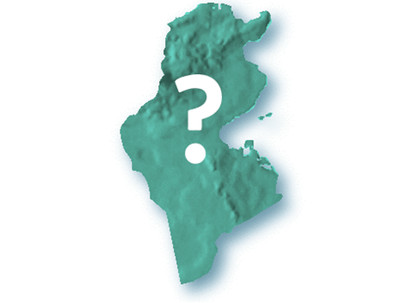年度国家奖
Hope springs
希望在跳跃
This has been a bad year for nation-states. But some—and one in particular—deserve congratulations
今年对于国家来说并不好,但是一些国家,特别是有一个国家,还是值得去祝贺的。
EVEN with the best will in the world—which, in 2014, has not been conspicuously forthcoming—the outgoing year could not be regarded as one of the planet's finest. Between war, disease and insurrection, the past 12 months have often seemed a gory relay for the apocalypse's four horsemen. But look closely, and amid the misery there have been reasons for optimism. Whether by dint of boldness or stoicism, there are numerous candidates for the coveted title of The Economist's country of the year.
即使是2014年世界上最好的一面还没有显出来,即将过去的一年也不会是最美好的年份之一。在战争、疾病和暴乱之中,过去的12个月似乎往往是大灾难接踵而至。但是仔细看,在痛苦之中也有乐观的理由。无论是凭借勇敢还是坚忍,都会有许多国家能够列入人人向往的《经济学人》年度国家奖项候选名单当中。

In fact 2014 was a bad year for the very concept of countries, as well as for lots of individual nations. The pre-modern marauders of Islamic State (IS) rampaged between Iraq and Syria, and Russian forces dismembered Ukraine, as if borders were elastic lines rather than fixed frontiers. Boko Haram traduced the sovereignty of Nigeria while the Shabab convulsed the Horn of Africa. South Sudan, a brand new country born only three years ago, imploded in civil war.
事实上,就整个国家概念本身以及许多单个国家而言,2014年并不美好。近代前的伊斯兰国家掠夺者在伊拉克和叙利亚之间猖狂肆虐,俄罗斯强迫分割乌克兰,仿佛边界就像有弹性的线条而非固定的边际线。博科圣地诋毁尼日利亚的主权,青年党(索马里的一个党派-译者注)让非洲之角动荡不安。仅仅三年前建立的全新国家南苏丹爆发内战。
But other territories have bravely resisted disintegration. The Marshall Islands may be sinking but, by championing the struggle against climate change, they are at least going down fighting. The peshmerga of Iraqi Kurdistan—not yet a country but perhaps on its way to that status—repelled the jihadists of IS and may have saved Baghdad. In a different, democratic kind of confrontation, but in its way an equally vigorous one, the people of Scotland wisely voted not to end three centuries of union and stayed in the United Kingdom. That would make Scotland a good candidate for our title, except that lauding it as a country because it chose not to become one might seem gallingly contrarian.
但是其他国家勇敢地抵御了分裂。马绍尔群岛可能在下沉,但是这个国家勇敢应对气候变化,至少他们在行动。来自伊拉克库尔德斯坦(目前还不是一个国家,但是正在努力成为一个国家)的勇士们反对伊斯兰国家的极端分子,很可能挽救了巴格达。而用一种不同的,民主的方式,但是同样是大力度的方式对抗分裂的例子就是苏格兰人民拒绝断绝与联合王国300年的联姻,选择留在英国。这让苏格兰成为获得该奖项的绝佳候选,但是就因为苏格兰人民选择不独立出来而称其为一个国家可能与众人意愿背道而驰。
Disaster has been averted elsewhere, too. Senegal responded with alacrity to its Ebola outbreak (as indeed did Nigeria). Afghanistan remains one of the world's bleakest places, but it looks a little less bleak after a peaceful handover of power: the Taliban are still slaughtering people, but politically they are a busted flush. Tiny Lebanon deserves a mention for absorbing hundreds of thousands of Syrian refugees, plus the machinations of malignant outsiders, and continuing, just about, to function. If the peace process between Colombia's government and its FARC guerrillas succeeds, it will be a favorite for our award in 2015.
在其他地方,灾难也得到了避免。塞内加尔非常欣然地应对了埃博拉疫情(尼日利亚当然也是如此。)阿富汗一直是世界上最没有希望的国家之一,但是在权力和平交接之后就变得不那么没有希望了。塔利班仍然在屠杀人民,但是从政治上看他们充满热血。黎巴嫩这个小国值得一提,因为它收养了成百上千名叙利亚难民,包容了恶毒的局外人使出的阴谋诡计行为,而且继续行使其权力。如果哥伦比亚政府及其革命武装力量游击队员的和平进程能够成功,那么哥伦比亚将会成为2015年年度国家奖的热门人选。
On our home turf of economics there have been some standout performances. Ireland and Iceland have both pulled clear of trouble, showing that democracies can, after all, implement painful decisions when they must. Unusually among euro-zone countries, Estonia has kept its nose clean. Narendra Modi's victory in India may come to be seen as the moment the world's biggest democracy began to realize its vast potential. We may find that out in 2015, too.
就本刊所讲的经济学而言,也有一些拥有突出表现的国家。爱尔兰和冰岛都走出了困境,表明民主毕竟在必要的时候会有助于实现痛苦的决定。在欧元区国家当中有不同寻常的表现,爱沙尼亚按套路出牌,纳伦德拉·莫迪在印度选举中获胜,这一刻可能意味着世界上最大的民主国开始显现出巨大的潜力。我们也会在2015年拭目以待。
And the winner is…
那么获奖者是…
Yet there is more to life and to statecraft than guns and GDP: witness our choice in 2013 of Uruguay, for its liberal stance on drugs and gay marriage. (Uruguay has had another strong year, notching up a model election, impressive growth and a grown-up welcome to six internees from Guantánamo.) The two top contenders for our 2014 title earned their kudos for displays of political maturity that, like most great achievements, involved both leaders and their people.
但是民生和管理国家的方式比军事和GDP更能作为评判的标准。2013年的获奖者是乌拉圭,原因是该国对毒品和同性婚姻持开明的立场。(乌拉圭今年又是强势的一年,创建了一个模拟选举,增长让人瞩目,欢迎了来自关塔那摩的6名政治犯出狱。)2014年度国家奖的前两名竞争者展现出了政治上的成熟,和其他的成就一样,这种成熟涉及领导和人民。
The runner-up (just) is Indonesia, the world's largest Muslim nation, where a modern politician bested the old, militaristic regime in a fair if rancorous vote. The new, reforming president, Joko Widodo, has begun to nudge his country beyond its crossroads and towards prosperity.
亚军得主(仅仅是亚军)是世界上最大的穆斯林国家印度尼西亚。一位现代政治家以充满敌意但是很公平的投票打败了陈旧的军国主义体制。崇尚改革的新任总统佐科·维多多开始将自己的国家跨出十字路口,向着繁荣前进。
Our winner is a much smaller nation, but we think symbolism matters more than size. The idealism engendered by the Arab spring has mostly sunk in bloodshed and extremism, with a shining exception: Tunisia, which in 2014 adopted a new, enlightened constitution and held both parliamentary and presidential polls (a run-off is due in the latter on December 21st). Its economy is struggling and its polity is fragile; but Tunisia's pragmatism and moderation have nurtured hope in a wretched region and a troubled world. Mabrouk, Tunisia!
而今年的年度国家奖得主面积要小得多,但是我们认为象征意义比面积更重要。源自阿拉伯之春的理想主义大多已经淹没在屠杀与血腥之中,但是有一个国家是例外,而且有着闪光点,这个国家就是突尼斯。2014年,突尼斯采纳了一部具有启发意义的新宪法,并进行了议会和总统选举(后者会在12月21日进行附加选举。)该国的经济在挣扎,政治组织脆弱,但是突尼斯的实干主义精神和温和立场为这个悲惨的地区和不安的世界孕育希望。祝贺突尼斯!译者:梁辰













